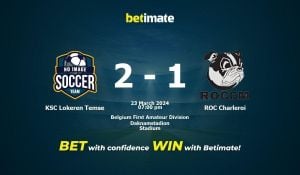With the 2025 Polish presidential election looming on May 18, the political environment is heating up as candidates begin to carve out their stances and target key demographics. Currently, the race appears tightly contested between several major figures, including Karol Nawrocki, Rafał Trzaskowski, and Sławomir Mentzen.
Karol Nawrocki, seen as one of the front-runners, is bolstered by the ruling Law and Justice party (PiS). Mariusz Błaszczak, the head of the PiS club, emphasized Nawrocki’s candidacy as pivotal for maintaining strong relations with the USA: "If Karol Nawrocki becomes the next president of Poland, relations with the USA will be good," he stated. This sentiment reflects Nawrocki's campaign focus on Western alliances amid rising tensions with Russia over its invasion of Ukraine.
Likewise, Nawrocki’s rhetoric paints Russia as the primary threat to Poland. He describes the country as "a barbaric, cruel, post-Soviet state" and blames prior European leadership for fostering conditions leading to war. His approach seems to resonate with voters seeking stability and security, especially during such turbulent times.
Meanwhile, Trzaskowski, who was once expected to lead the pack, is now facing declining support according to recent polls. Analysts draw parallels between him and Hillary Clinton, both viewed as established candidates with faltering backing as elections approach. Trzaskowski had shown promising numbers yet saw an 8 percent drop since December, igniting concerns about his campaign's viability as the contest progresses.
With Nawrocki and Trzaskowski potentially heading to the second round of voting, polling data suggests Trzaskowski may hold the upper hand, particularly if he can mobilize undecided voters. Despite this, the competition is increasingly fierce, with Sławomir Mentzen making notable ground among right-leaning citizens. Reports indicate he has captured the support of twice the number of voters as Nawrocki, indicating growing unease within the PiS electorate.
Mentzen's campaign champions low, straightforward taxes and opposition to EU climate policies, positioning himself as the solution for voters disillusioned with the existing order. "Poland has the most complicated taxes in all of Europe," he remarked, advocating for radical tax reduction measures if elected.
Yet, with competing candidates vying for the same voter segments, the dynamics within the race may shift rapidly. Analysts point out Mentzen’s challenge is not only to distinguish himself from Nawrocki but also to secure voters disenchanted with Trzaskowski. His focus may find fertile ground, but whether it translates to votes remains to be seen.
Adding to the complexity of this election is the student of shifting loyalties and demographics: Mentzen's appeal to younger voters contrasts Nawrocki's connection with older generations. The conflict over the influx of Ukrainian refugees is another contentious topic, with Mentzen criticizing policies enacted by the PiS government as overly accommodating.
Eastern European geopolitics is not just backdrop incidental to the presidential race; it is now the focal point of candidate campaigns. "The present state of Europe is chaotic due to the decisions made by our elites with regard to Putin, leading to the war and attacks on Ukraine," Nawrocki recently declared, framing his narrative around national security as pivotal for Poland’s future.
The Presidential race will also see the left's candidate, Magdalena Biejat, advocating for Europe-centered policies versus the populism brewing among right factions. Biejat underscored, "The era of diminishing the European Union from within is over." Her campaign indicates backing coordinated defense measures within the EU to tackle challenges, particularly concerning security and migration.
While the campaign trail is still stretching out before these candidates, the political climate may evolve drastically as they all attempt to sway undecided voters poised to affect the results of this election. The possibility of low turnout adds another layer of intrigue—especially if the races deliver fewer compelling narratives or fails to differentiate significantly among candidates.
With multiple factors at play, including foreign policy positions and tax reforms, potential outcomes depend largely on how effectively candidates resonate with and mobilize voters during the remaining weeks leading to the election day. The growing number of individuals stating they remain unsure about their choice could alter the expected predictions if candidates deliver decisive, attractive platforms.
The Polish presidential election is lined up to be more than just electoral management—it may pivot on defining moments related to national security and long-term political alliances. For now, with glaring and potent issues on the table for candidates to tackle, only time will tell who will navigate the waters best, and whose strategy will lend itself to electoral success.



